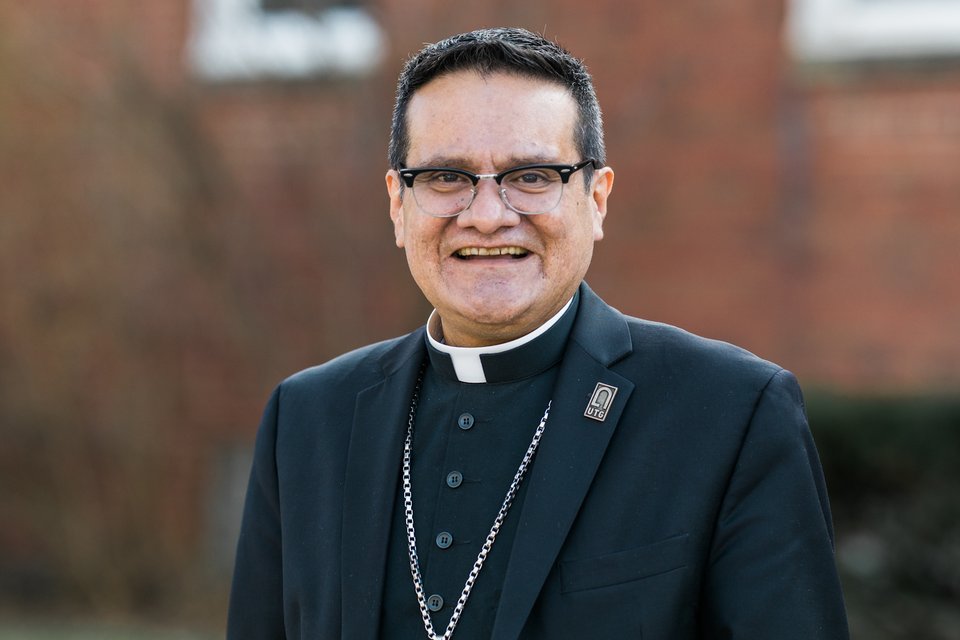As Detroit's new auxiliary bishop prepares to return home, he calls pastoral visit 'one of the most heart-wrenching I've ever made'
DETROIT — As Detroit’s newest auxiliary bishop prepares to move from his home in Steubenville, Ohio, back to his native Archdiocese of Detroit, he found himself thousands of miles from both places last week: Ukraine.
Bishop Jeffrey M. Monforton, who on Sept. 28 was named the 32nd auxiliary bishop of Detroit and will begin his ministry here on Nov. 7, traveled to the war-torn nation on a personal visit of solidarity Oct. 18-22, praying with victims of war, assisting clergy and aid workers and assessing needs as the long, harsh winter approaches.
The visit was coordinated with the help of Metropolitan Archbishop Borys A. Gudziak of the Ukrainian Catholic Archeparchy of Philadelphia.
Although the visit to Ukraine was a personal one, Bishop Monforton also serves as chairman of the U.S. Conference of Catholic Bishops’ Subcommittee on Aid to the Church in Central and Eastern Europe, the American bishops’ main outreach to Ukraine and nearly two dozen other nations recovering from communist oppression.
Bishop Monforton’s visit included stops in Lviv, in the country’s west, and Kiev, Ukraine’s capital, where he toured neighborhoods bombarded by Russian missiles and visited with the families of young Ukrainian men and women who have given their lives for the war effort.
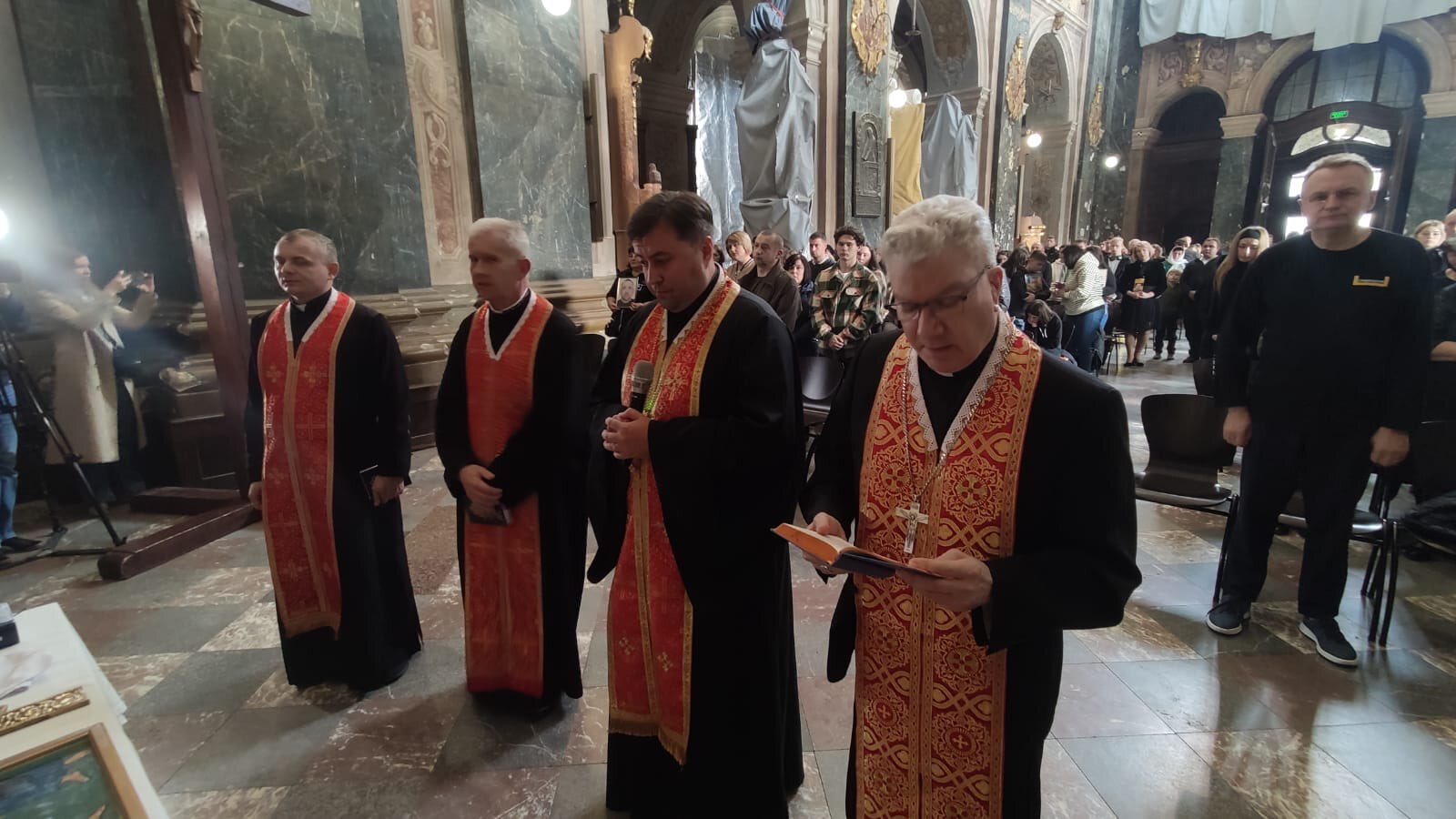
"In my solidarity visit to Ukraine ... I had the honor to meet with and to pray with families of fallen Ukrainian soldiers," Bishop Monforton wrote Oct. 24 on X, formerly known as Twitter. "The city of Lviv buries 1-3 native sons or daughters a day resultant of the war."
Bishop Monforton said having the chance to speak with family members of the deceased was “one of the most heart-wrenching visits I’ve ever made.”
“You can’t tell them everything will be all right, because I’ve never been in that situation. I have no business telling them it’s going to be all right,” Bishop Monforton told Detroit Catholic in a phone call. “But my presence there was about showing them solidarity, that we in the United States do care about them.”
Arriving in Warsaw, Poland, on Oct. 16, Bishop Monforton traveled 14 hours by car across the border to Kiev, spending several days while visiting aid shelters and neighborhoods bombed by the Russian military. He then traveled to Lviv, in the country’s west, before returning to Warsaw on Oct. 22.
Since the beginning of the Russian invasion of Ukraine in February 2022, the Catholic Church in the United States has stepped up its humanitarian support to Ukraine through the U.S. bishops’ annual collection for the Church in Central and Eastern Europe. During the first few months of the war, the U.S. bishops expedited nearly 50 grants to churches and Catholic humanitarian organizations in Ukraine and surrounding nations serving refugees and Ukrainian families.
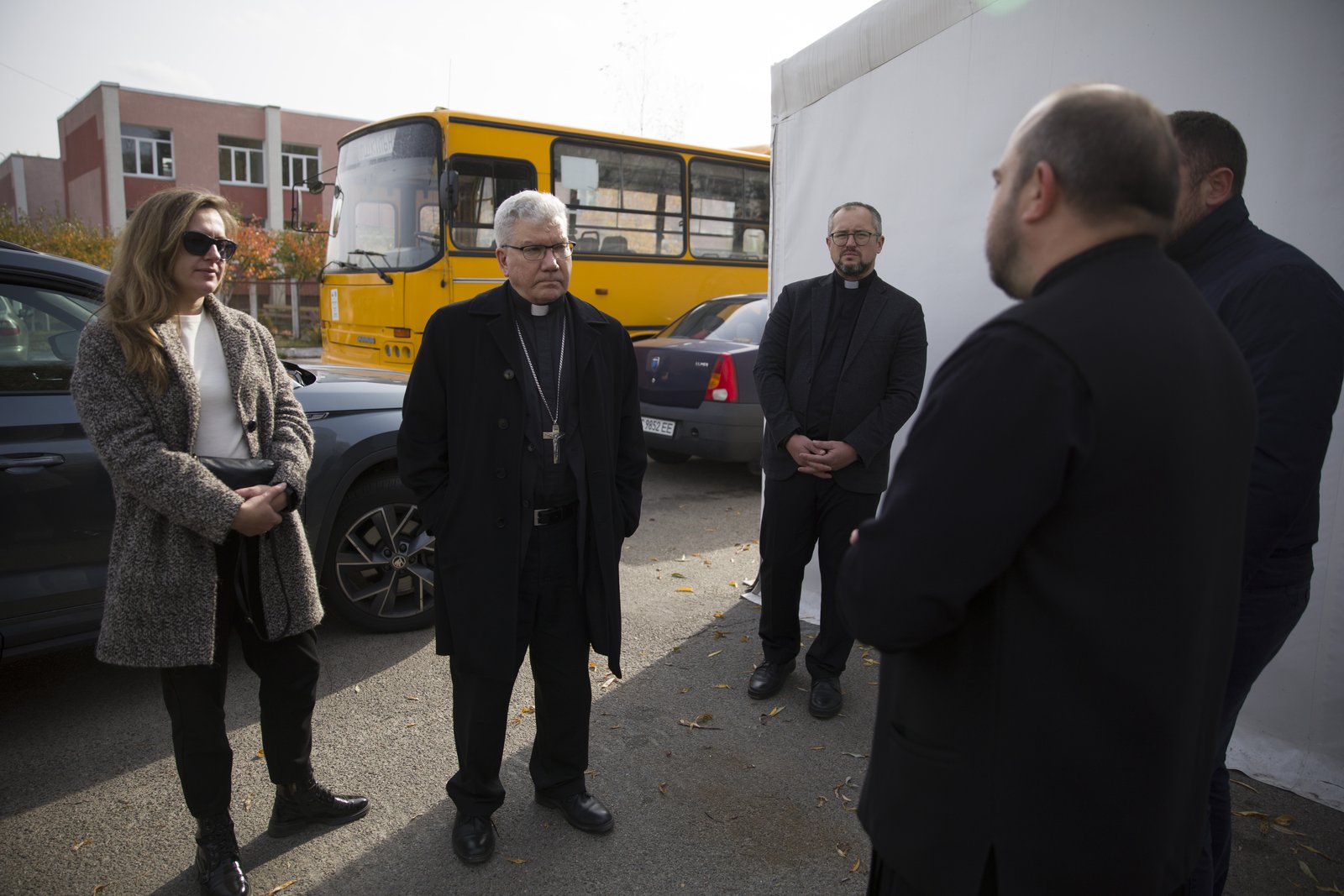
The grants have allowed aid organizations such as Caritas Ukraine and others to supply refugees and war victims with shelter, heat, water, food, medicine, trauma counseling and internet access, even as the invading Russian military hurled bombs toward residential neighborhoods.
“We coordinate with Catholic agencies in other places such as Italy and Germany, so it’s not just one of us carrying the load. It’s all of us together,” said Bishop Monforton, who visited with volunteers and aid workers from Caritas Ukraine operating a makeshift shelter providing warmth and internet access in Kiev.
One of the most immediate needs facing the people of Ukraine as winter approaches is heat, Bishop Monforton said. After the Russian military took out sections of Ukraine’s power grid, Catholic agencies organized the donation of dozens of generators, but a missile strike on a warehouse containing the generators was also struck.
“The Russians hit the power grid because they’re trying to keep everybody over there in the dark and in the cold,” Bishop Monforton said. “For the U.S. bishops, our priority is to get them more generators, because their weather is like northern Michigan’s in the wintertime.”
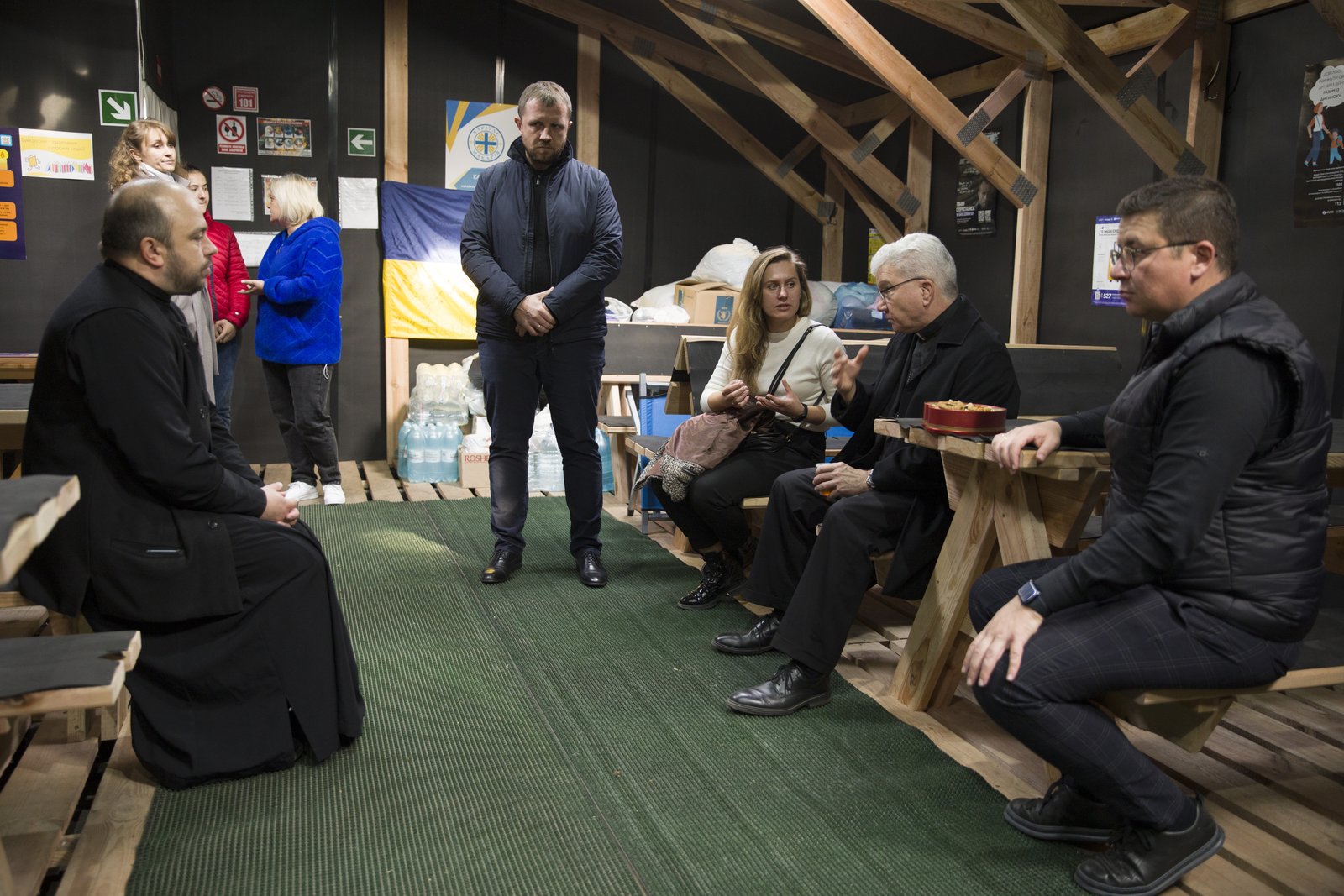
The U.S. bishops and Catholic aid organizations are supporting Ukraine through various forms of humanitarian aid, Bishop Monforton said, including clean drinking water, working vehicles and shelters for displaced families.
In a video appeal to Catholics in the United States, Bishop Monforton stood in front of an incinerated apartment building in Irpin, a suburb 30 minutes from downtown Kiev that was devastated by Russian airstrikes last year.
“Many people died here. A lot of atrocities occurred here. People can’t return as long as the work is unfinished, but they’re trying to rebuild, and that’s a sign of resolve, and a sign of resilience,” Bishop Monforton said in the video. “Let’s keep all in prayer, especially those who lost their lives here.”
In Lviv, Bishop Monforton prayed with local Ukrainian clergy and war victims, met with the city’s mayor and visited a hospital where prosthetics are fitted for soldiers injured in the war, as well as the gravesites of young men and women killed in the conflict.
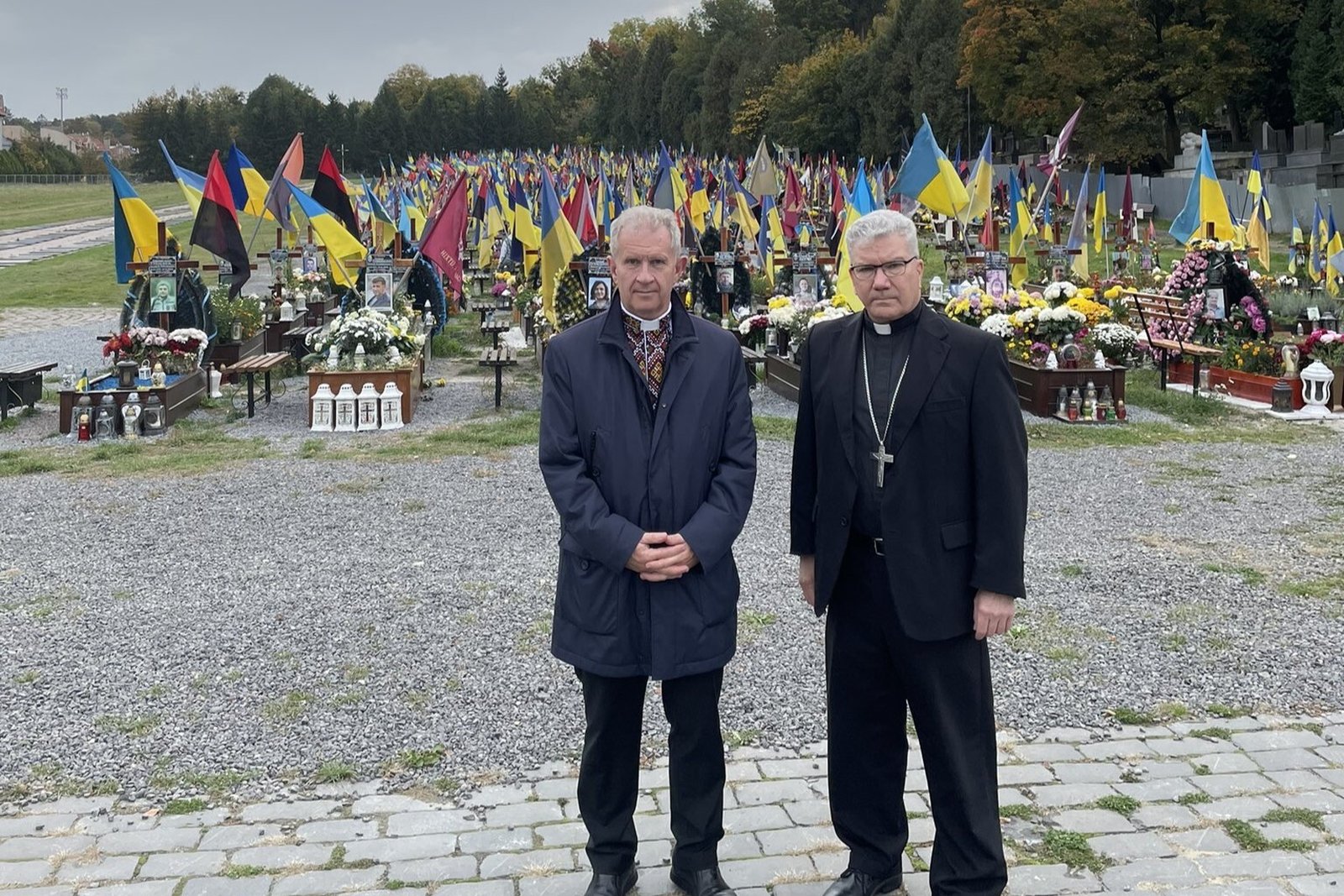
While Bishop Monforton had been to Ukraine once before — in 2001 while traveling as secretary to Detroit Cardinal Adam J. Maida on a pastoral visit to accompany Pope St. John Paul II — he said the war has not dampened Ukrainians’ spirits, nor their sense of generosity.
“The hospitality of the people there was amazing. They didn’t have a surplus from which to give, so they provided out of their need,” he said. “Their country has endured so much.”
Despite the horrors, and living under the constant fear of air raid sirens, Bishop Monforton said the Ukrainian people remain as committed to their independence as they’ve been since the invasion began.
“Ukrainians are resolute and resolved. They stand their ground as a sovereign nation," Bishop Monforton said. "Pope Francis has said they are victims of cultural imperialism. These are our brethren. They need material goods, but it’s also important that we keep them in prayer as we encounter and accompany them.”
An earlier version of this story incorrectly stated Bishop Monforton stayed with the Ukrainian Orthodox patriarch. His visit was coordinated with the help of the Ukrainian Greek Catholic Church. Detroit Catholic regrets the error.
Copy Permalink
Bishops




